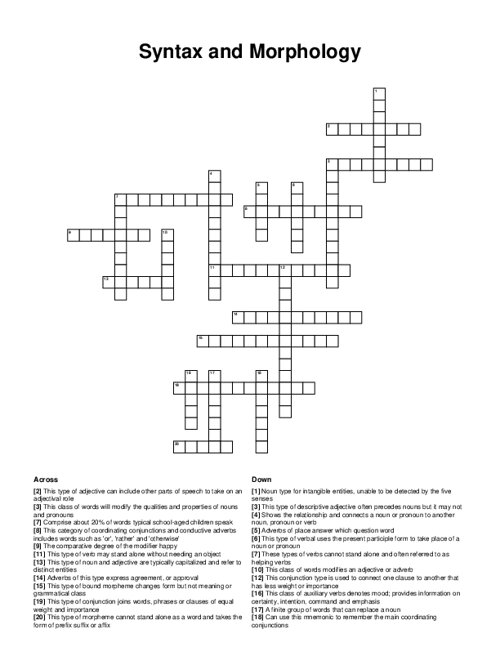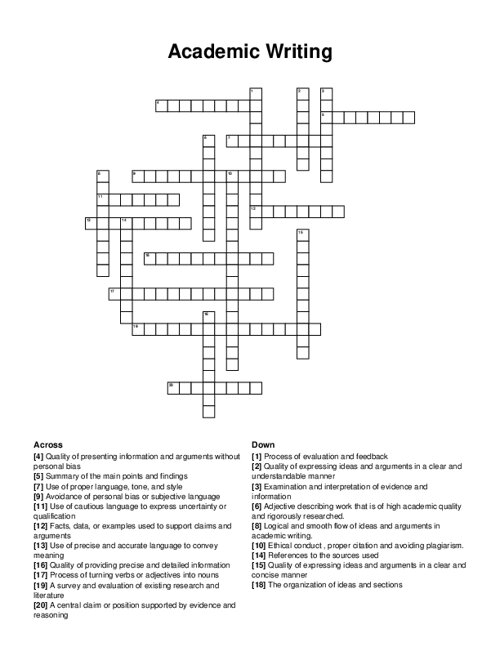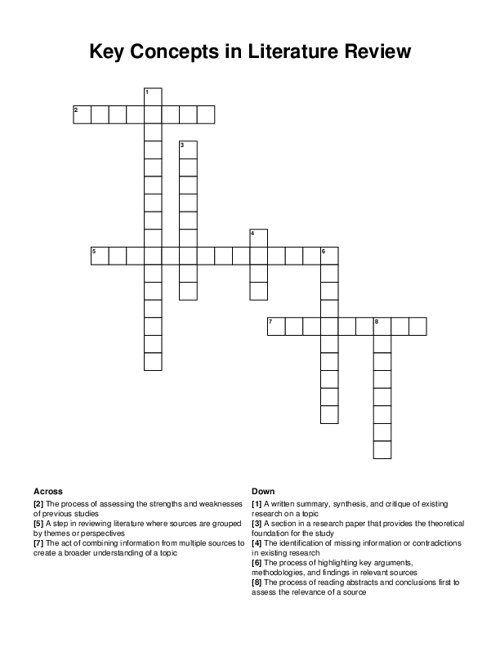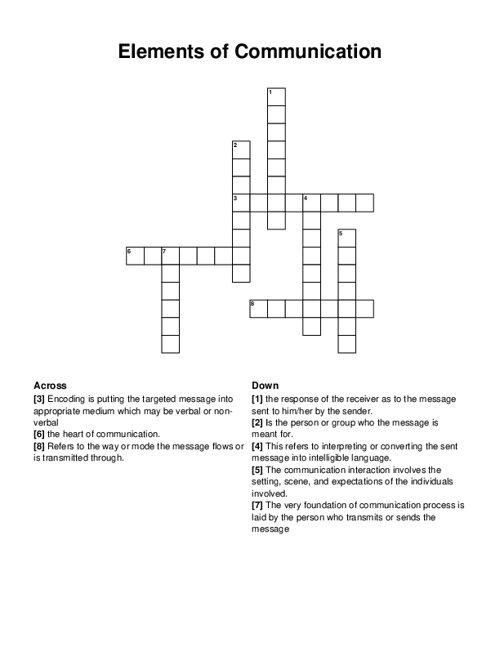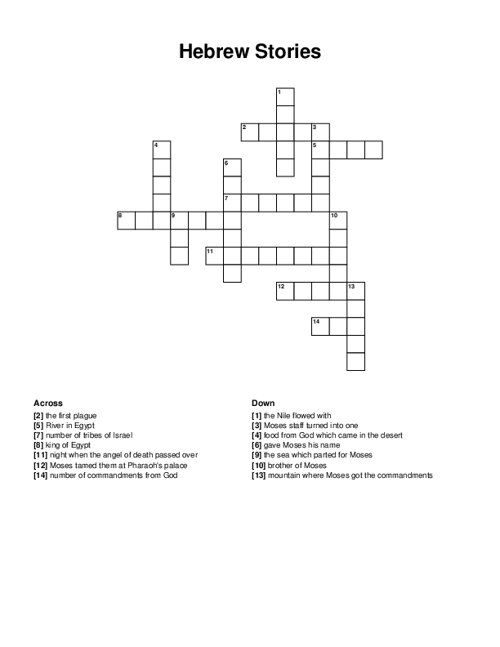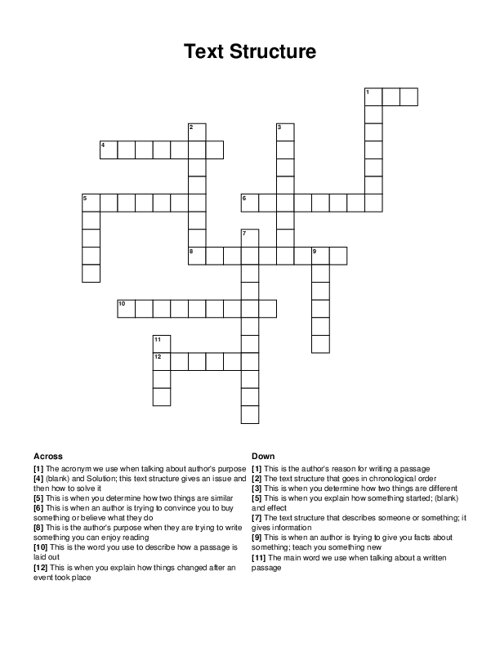Syntax and Morphology Crossword Puzzle
Download and print this Syntax and Morphology crossword puzzle.
Related puzzles:
Browse all Books / Literature Puzzles
QUESTIONS LIST:
- abstract : noun type for intangible entities, unable to be detected by the five senses
- pronoun : a finite group of words that can replace a noun
- gerund : this type of verbal uses the present participle form to take place of a noun or pronoun
- adjectives : comprise about 20% of words typical school-aged children speak
- limiting : this type of adjective can include other parts of speech to take on an adjectival role
- proper : this type of noun and adjective are typically capitalized and refer to distinct entities
- modal : this class of auxiliary verbs denotes mood; provides information on certainty, intention, command and emphasis
- coordinating : this type of conjunction joins words, phrases or clauses of equal weight and importance
- happier : the comparative degree of the modifier happy
- inflectional : this type of bound morpheme changes form but not meaning or grammatical class
- intransitive : this type of verb may stand alone without needing an object
- adverb : this class of words modifies an adjective or adverb
- bound : this type of morpheme cannot stand alone as a word and takes the form of prefix suffix or affix
- attributive : this type of descriptive adjective often precedes nouns but it may not
- separative : this category of coordinating conjunctions and conductive adverbs includes words such as 'or', 'rather' and 'otherwise'
- subordinating : this conjunction type is used to connect one clause to another that has less weight or importance
- affirmation : adverbs of this type express agreement, or approval
- fanboys : can use this mnemonic to remember the main coordinating conjunctions
- adjective : this class of words will modify the qualities and properties of nouns and pronouns
- preposition : shows the relationship and connects a noun or pronoun to another noun, pronoun or verb
- where : adverbs of place answer which question word
- auxiliary : these types of verbs cannot stand alone and often referred to as helping verbs
